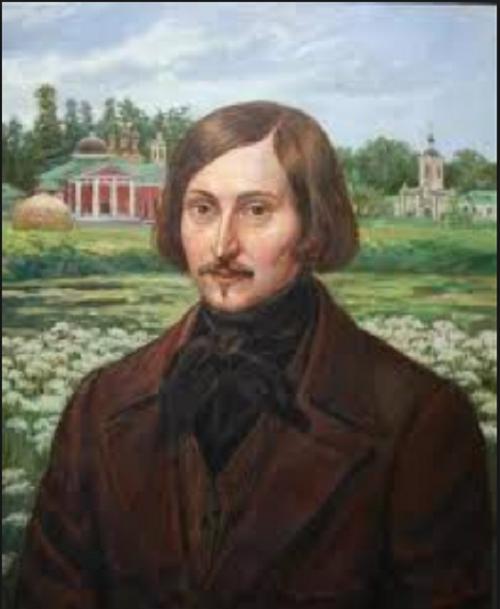The surname Tolstoy is very common in Russian history. But few people can find the name Alexander Petrovich in their memory. Meanwhile, Count Alexander Petrovich and his wife were the closest people to Nikolai Vasilyevich Gogol. The article provides a brief biography of this famous personality.
Generic roots
Alexander Petrovich’s father, Count Pyotr Aleksandrovich, was a hereditary military man and made an outstanding career in this field. Already at the age of 32, having tried himself as commander-in-chief in St. Petersburg, he distinguished himself during the Napoleonic Wars, having served the rank of general from infantry. The list of military relatives includes Izmailovs, Golitsyns, and Saltykovs.
Princess Golitsyna Maria Alexandrovna became his wife, and on February 9, 1801, she presented the Count with a son who became the full namesake of his paternal grandfather.
Youth
The biography of Alexander Tolstoy begins traditionally. Of course, a military career was also planned for the young heir. Not reaching the age of seven, the younger Tolstoy became a cunker of the Life Guards of the Artillery Brigade. In 1819, Alexander Tolstoy was already a horse artilleryman, and two years later - the Life Guards cavalry guard. While in the military expedition studying the Caspian Sea from 1824 to 1826, he proved himself a brave and resourceful officer and was awarded.
Having completed this military-geographical mission, Alexander Tolstoy transferred to the College of Foreign Affairs and sent as a freelance employee to the Russian mission in Paris. The count carries out various secret missions, including in Constantinople. The beginning of the Russian-Turkish war in 1828 prompted the young count to return to his native Cavalier Guard regiment. Alexander Tolstoy fought in the Balkans under the command of General Dibich.
Before the signing of the peace treaty, Alexander Petrovich was identified in the imperial retinue. At the end of the winter of 1830, the Count was released from military service, conferring the title of Chamberlain of His Majesty. When serving at the Russian Embassy in Greece, Tolstoy Alexander Petrovich chose to be appointed head of economic affairs at the Ministry of the Interior. In 1833, the count married Princess Anna Georgievna of Georgia.
State activity
Two and a half years of conscientious service were crowned with the receipt of the rank of full state adviser. Soon, Alexander Petrovich took up the post of civil governor of Tver and stayed in it until moving to Odessa as the military governor at the end of 1837. However, civilian civil affairs were also under his jurisdiction. By this time, Tolstoy Alexander Petrovich was already a major general. The clash with his father’s comrade-in-arms, hero of the Napoleonic and Russian-Turkish wars, an influential dignitary, governor-general of the Novorossiysk and Bessarabsk Territory M.S. Vorontsov forced Alexander Tolstoy to resign and leave abroad in early 1840.
It was not until the spring of 1855 that the Major General led the Nizhny Novgorod militia, called upon to defend their homeland in another war, this time in Crimea. Lieutenant General Tolstoy became already the chief prosecutor of the Holy Synod.
Chief Prosecutor
This position arose in connection with the religious reform of Peter I. Having abolished the institution of patriarchy and made the administration of the church collective, Peter finally decided to establish an intermediary position between himself and the Holy Synod. The newly-appointed Chief Prosecutor of the Synod had great powers:
- He transmitted to the churchmen all the wishes and orders of the king.
- He accepted the request of the Synod to the king.
- He was aware of all church affairs.
- Participated in decision-making on all religious issues.
Church leaders were pleased with the activities of Alexander Petrovich, seeing him as a gentle and sensitive person in matters of faith. The count made acquaintance with the famous Orthodox elders, read a lot of spiritual literature and became involved in church rites.
After leaving office in 1862, Tolstoy Alexander Petrovich joined the Council of State.
Friendship with Gogol
Almost all the years spent by Alexander Petrovich out of work were brightened up by close friendship with a great writer. Nikolai Vasilievich Gogol found a soul mate and similar interests in the graph. Of course, like any educated person, Alexander Petrovich was quite familiar with literature and communicated with modern writers and cultural figures. Indeed, at that time, writers were received even at the court of the emperor.

Soviet scholars of Gogol’s work accused Alexander Petrovich of adversely affecting the writer's worldview. It was argued that the religiosity and mysticism of Nikolai Vasilyevich originated from the time he met Tolstoy. But contemporaries testify that Gogol had a solid and independent character. There was even a psychiatrist who joined the discussion of the personality and causes of the death of the writer caused by his sudden death at 42, and stated that Gogol had megalomania. In addition, there were letters of Alexander Petrovich addressed to Nikolai Vasilievich, in which he asked for instructions in spiritual reading and fasting. Gogol’s letters are full of advice and teachings. In this spirit, he wrote to other acquaintances.
But the writer had a particularly warm and trusting relationship with the Tolstoy family. A letter from their correspondence dating back to 1939 has been preserved. Most often, religious issues were discussed. It can even be assumed that the path to the position of chief prosecutor was paved by Alexander Petrovich, the author of “Selected Places from Correspondence with Friends”. Gogol stopped many times at the Tolstoys in Paris, in Moscow on Nikitsky Boulevard. Based on the fact that the writer was collecting information about the Lyskovsky Fair, it is possible that the estate of Father Anna Georgievna there also gave shelter to the great contemporary.
The writer died in the Moscow Tolstoy mansion. Therefore, a monument to Gogol was erected in the yard.
Tolstoy Alexander Petrovich (1801-1873) died in Geneva; buried in the Donskoy monastery in Moscow.